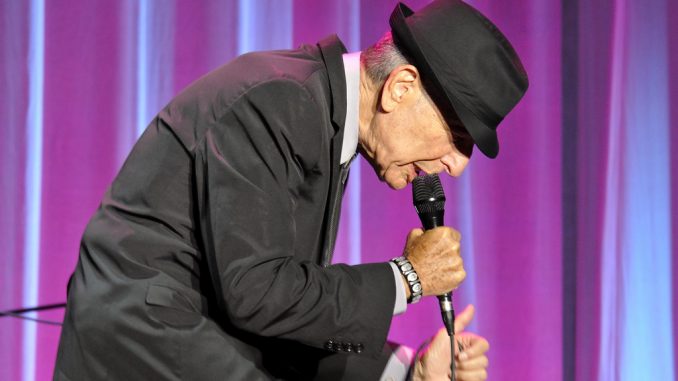
Leonard Cohen was born weary. It would be inaccurate to claim that “You Want It Darker,” Cohen’s fourteenth studio album, is somehow breaking new ground in this regard. His voice is as raspy and haunting as ever, and his songwriting embodies the same nuanced humanity that has made him such a renowned poet in his 50 plus years of musicianship.
But unlike past albums, “You Want It Darker” possesses a bleak sense of finality, that of a man firmly at stage in his life at which to look forward is to peer beyond death. Cohen, who told The New Yorker earlier this month that he’s “ready to die,” may not have another album in him. Various health ailments have made touring difficult for the 82-year-old musician, but age and sickness have not dulled his poetic mind, and if “You Want It Darker” truly is his swan song, he will have cemented his legacy with one of his finest pieces of art.
“Hineni, hineni / I’m ready, my Lord” repeats throughout the title track, Cohen declaring in Hebrew his resignation to his mortality (“hineni” directly translates to “Here I am”). Cohen frequently uses his music to discuss his relationship with God, but never before has he been so close to his lifetime companion. “You Want It Darker” frames death as the fulfillment of divine command, and Cohen accepts his marching orders.
Cohen’s submission goes beyond just mortality, however. When Cohen sings “I’ve seen you change the water into wine / I’ve seen you change it back to water, too” on “Treaty,” it is in service of the spiritual lens through which he views his own relationships. For Cohen, love given and received amounts to a tremendously religious experience. His iconic “Hallelujah” — to which “Treaty” almost feels like a follow-up — cloaks itself in consonant Abrahamic metaphor, and similarly laments the degradation of the relationship in question.
The instrumentals on “You Want It Darker” supplement the album’s theme of quiet surrender, with the same toned-down approach present on 2012’s “Old Ideas” and 2014’s “Popular Problems.” Much like those two albums, “You Want It Darker” can stumble into the pitfalls of sounding cheap and synthetic, but those moments here are a lot fewer and farther between than in the past, and generally restricted to percussion this time around.
Even taking some of the weaker instrumental elements into consideration, “You Want It Darker” remains an effectively moody and gloomy listen, with haunting violins and somber pianos elevating Cohen’s gruff and tired whispers.
Few artists with as long and illustrious a career as Leonard Cohen’s can maintain consistent quality so late into their careers, but Cohen has never missed a beat. He continues to mine his sorrows with a wit and delicacy that have kept his material from ever becoming too ingratiating. When Cohen mourns, his grief is never utilized in the service of emotional exploitation. In some ways, “You Want It Darker” may be his most heartbreaking project to date. One can’t help but reflect back to early January, when David Bowie’s “Blackstar” revealed itself to be Bowie’s departing letter following his death two days after the album’s release.
It pains me to think that Leonard Cohen won’t be around forever. The world will inarguably be a worse place without him. But if “You Want It Darker” is at all indicative of where he is in his long life — and I suspect it is — then Cohen is at peace. And if Cohen is at peace, so am I.
